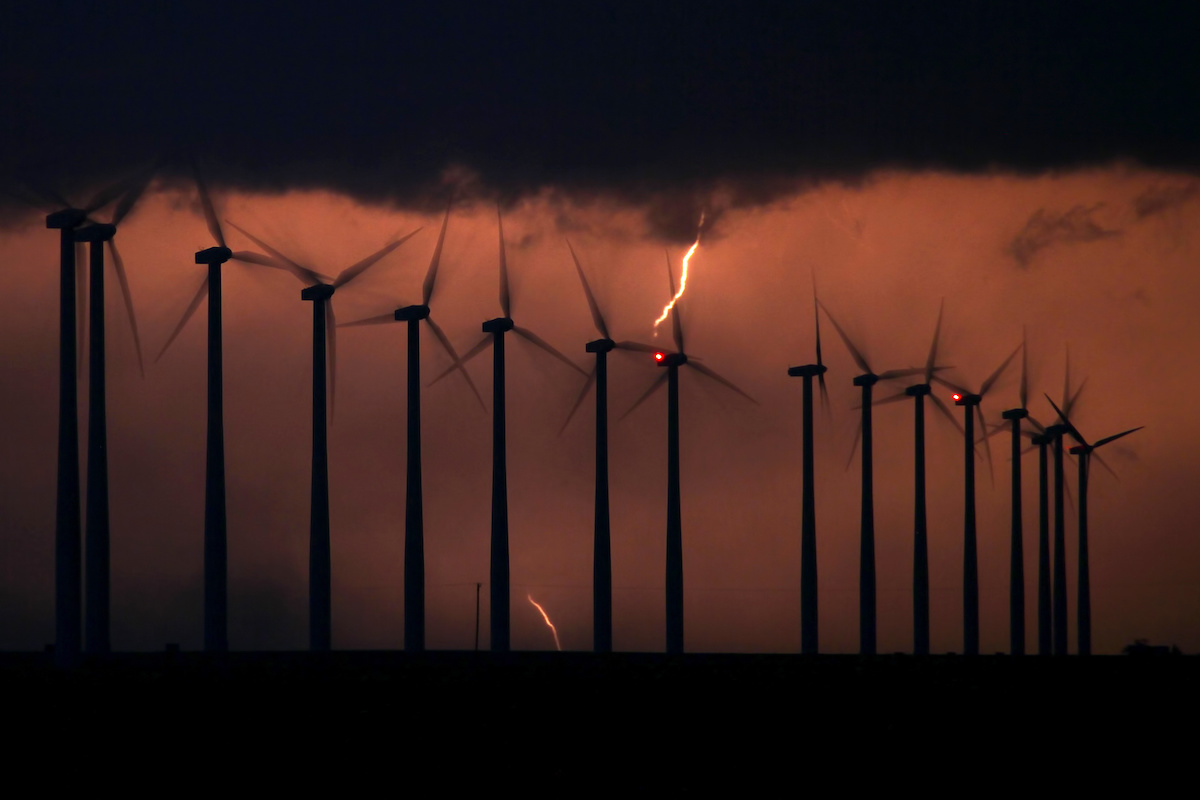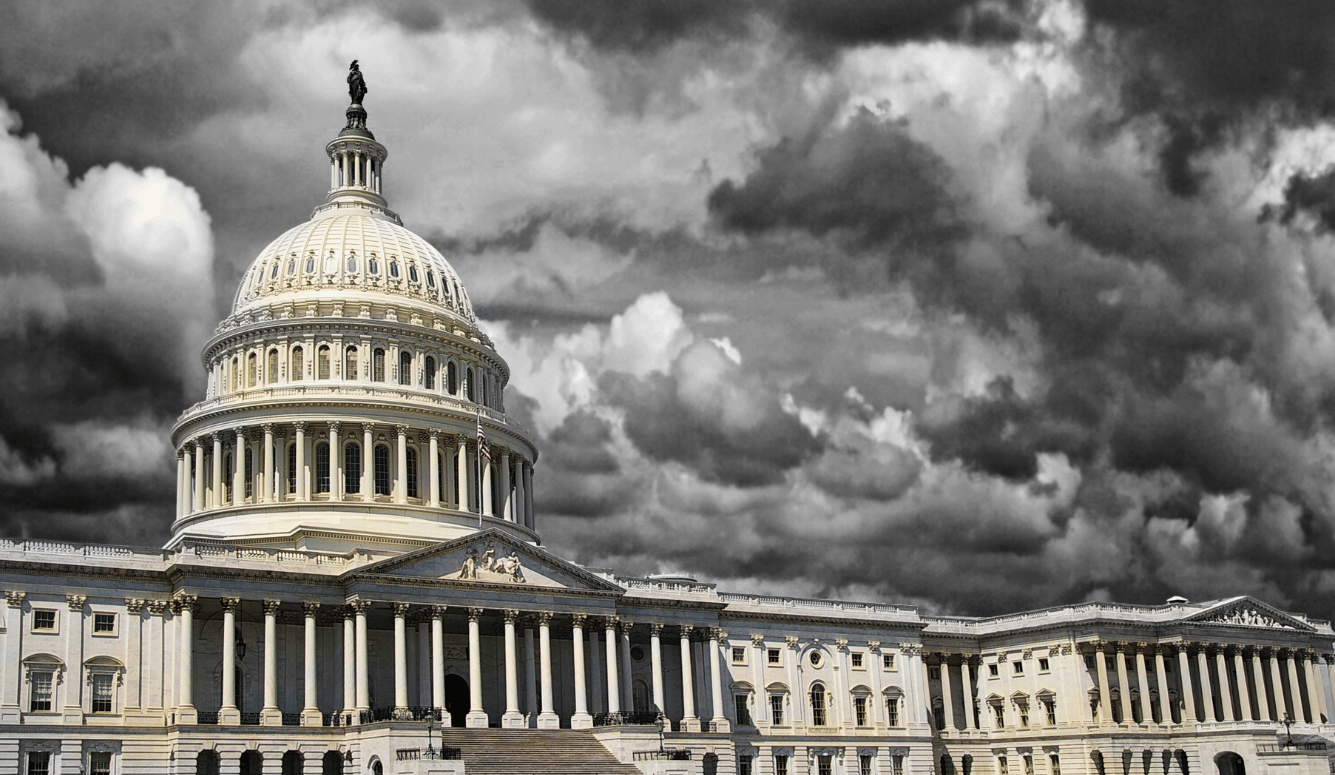Law
Previously Unrecognized Rights: Climate Change Lawsuits and the Rule of Law
Environmental advocates are asking courts to halt allegedly harmful private and public initiatives on the basis of ancient Roman law, common law doctrines, international agreements and norms, and innovative interpretations of constitutions.

Citizens around the world are asking courts to override the climate-related policy choices of democratically elected legislatures and mandate the substance of future legislation. In the name of previously unrecognized rights, plaintiffs in hundreds of cases are asserting that judges have the authority to command action by their supposedly co-equal legislative and executive branches of government. Whatever the merits of the plaintiffs’ policy objectives, their campaign to circumvent the political branches poses a serious threat to the rule law and the constitutional principle of separation of powers.
Since the beginning of the modern environmental movement in the 1970s, environmental advocacy groups in the United States have made regular use of the courts to advance their interests. Generally these environmental lawsuits have claimed government failure to comply with the procedural requirements of the National Environmental Policy Act, other federal legislation addressing specific environmental problems like the Clear Air and Water Acts and the Endangered Species Act, the various public lands management laws, and the Administrative Procedures Act. The result is almost always delay, sometimes leading to abandonment of the allegedly harmful government actions, but never judicial arrogation of the legislative and administrative functions of government.
While some government officials and private interests have objected to these delaying tactics, most of their displeasure has been directed at the environmental advocates and not the courts. The courts are only enforcing the procedural mandates enacted by Congress as well as by state legislatures. There can be no question that the costs of government action and of the affected projects are made markedly higher by these lawsuits, but if there is blame to be cast it lies with Congress and the state legislatures whose laws the courts are required to enforce.
The recent flurry of climate-related lawsuits is different. Environmental advocates are asking courts to halt allegedly harmful private and public initiatives on the basis of ancient Roman law, common law doctrines, international agreements and norms, and innovative interpretations of constitutions. The effort is not limited to the United States, or to the stopping of planned projects. At their most ambitious, environmental advocates are asking courts to mandate specific actions, including actions democratic governments have previously declined to take.
Courts in the Netherlands, Pakistan, and Colombia have done just that, and a federal district court in the state of Oregon has signaled that it might well follow suit. Many other such lawsuits have already been dismissed as without merit, but more are in the works.
In the 2015 case of Urgenda Foundation v. Kingdom of the Netherlands, the Hague District Court ordered the government of the Netherlands to implement climate change mitigation measures sufficient to achieve at least a 25 percent reduction (from 1990 levels) in Dutch CO2 emissions from all sources (public and private) by 2020. The claim was not that the Dutch government had failed to act, rather it was that the government had not done enough. At the time, government policies enacted by the Dutch parliament were projected to achieve a 14-17 percent reduction by 2020 (later revised to 20 percent), with an 80 percent reduction by 2050.
Notwithstanding that the plaintiffs and the government agree on the ultimate goal while disagreeing only on how to get there, it seems reasonable to ask: Why isn’t this an issue properly resolved in the executive and legislative branches of the Dutch government? Because, ruled the Dutch court, the policy choices made by the elected representatives in Parliament violate the rights of Dutch citizens.
For that claim to be credible the plaintiffs must have rights, in the nature of constitutional rights, which are violated by their elected government’s failure to enact the policies favored by plaintiffs. Bearing in mind that projections of the impact of different policies on future atmospheric carbon levels are highly speculative, one might ask how it is that policies now projected to yield a 20 percent reduction in emissions, as opposed to policies projected to achieve a 25 percent reduction, violate the rights of Dutch citizens? Would something greater than 20 percent but less than 25 percent be sufficient? Or must the predicted reduction on carbon emissions be at least 25 percent?
According to the Dutch court, whose ruling has since been affirmed by the Dutch Court of Appeal, the rights found to be violated by Dutch climate policy are rooted in an assortment of international agreements and the statutory and constitutional responsibility of the Dutch government to provide a “healthy and safe living environment.” The appellate court disagreed with nothing in the trial court opinion, while expanding the reach of the lower court ruling by relying largely on Articles 2 (right to life) and 8 (right to family life) of the European Convention on Human Rights. To conclude that these rights are being violated, both courts found it necessary to devote most of their opinions to analyzing and assessing the science on which the maximum tolerable temperature increase and the projected impact of emissions levels are based.
Recognizing that deep dives into the uncertain science of climate change and the policy alternatives for limiting the rise of global temperatures appear very much like the work of the legislative and executive branches of government, the trial court took pains to explain why it was not violating the separation of powers as it exists under Dutch law. “The task of providing legal protection from government authorities, such as the State, pre-eminently belongs to the domain of a judge.” “With this order,” they implausibly proclaimed, “the court has not entered the domain of politics.” The appellate court agreed, noting that the government will still have choices to make in deciding how to achieve the mandated reduction in emissions.

At the same time, there has been a concerted effort in the United States to circumvent the perceived intransigence of elected officials in both the legislative and executive branches of government. Based on imaginative and largely academic-inspired legal theories, an orchestrated barrage of lawsuits has been filed claiming that governments have violated an alleged fundamental right to live in a world free from climate change. The lawsuits and other legal proceedings, filed in all 50 states (coordinated by Our Children’s Trust), share in common the clever strategy of naming children as plaintiffs. Children make for sympathetic plaintiffs, and if you present a novel legal theory to enough judges, sooner or later one will be willing to embrace your claim.
Notable among these many lawsuits is Juliana v. United States in the Federal District Court for the District of Oregon. Climate activists have called it “the trial of the century,” largely because a preliminary opinion issued by the judge endorses the plaintiffs’ rights claims and defends judicial enforcement of those claims. The case was scheduled for trial late this month, but the U.S. Supreme Court has stayed the proceedings pending the plaintiffs’ response to the United States government’s request for dismissal on the grounds of a violation of separation of powers. Whether or not the case proceeds, the rights claims endorsed by the judge will continue to be raised in other cases in the U.S. and other countries.
The judge in Juliana ruled that both the 5th Amendment due process clause of the U.S. Constitution and the common law public trust doctrine guarantee “the right to a climate system capable of sustaining life.” “To hold otherwise,” wrote the judge, “would be to say that the Constitution affords no protection against a government’s knowing decision to poison the air its citizens breathe or the water its citizens drink.” The judge took no notice of the fact that the citizens she seeks to protect elected the legislative and executive officials to whom she, an unelected judge, is prepared to give orders. Nor does she acknowledge, as legislators must, that policy choices are not black and white—poison the air or not poison the air. Rather, legislators must consider multiple interests and balance competing priorities for the expenditure of scarce public resources.
The opinion in Juliana is an astonishing combination of creative legal interpretation and unabashed judicial usurpation of the legislative and executive roles under the constitutional separation of powers. Although the judge has yet to rule on whether these newfound constitutional and common law rights are violated in the case at hand, she has declared that the rights exist. In doing so, she observes that it may be suggested that she is establishing precedent for “the constitutionalization of all environmental claims,” but offers assurance that she “intend[s] to strike a balance and to provide some protection” against that result. Perhaps this is her idea of judicial restraint.
After summarily dismissing the government’s argument that the case presents political questions that should be left to the legislative and executive branches of government, the judge finds that the plaintiffs have stated a due process claim in alleging that “governmental action is affirmatively and substantially damaging the climate system in a way that will cause human deaths, shorten human lifespans, result in widespread damage to property, threaten human food sources, and dramatically alter the planet’s ecosystem.” Of course, government ought to be attentive to any and all of these alleged consequences, but does a constitutional responsibility to do so arise from the constitutional guarantee that “[n]o person shall be . . . deprived of life, liberty, or property, without due process of law”? Citing Supreme Court decisions upholding the rights to abortion and same sex marriage, but no precedent relating to the impacts of climate change on recognized constitutional rights, the judge declares that “[e]xercising my ‘reasoned judgment,’ I have no doubt that the rights to a climate system capable of sustaining life is fundamental to a free and ordered society.” She acknowledges that the due process clause ordinarily functions only as a limit on government interference with the exercise of individual rights and does not impose affirmative duties on government, but finds an exception where government inaction is alleged to harm “plaintiffs’ dignity.” Courts can order legislative and executive action, declares the judge, “when government conduct places a person in peril in deliberate indifference to their safety.”

If failure to protect individuals from the hazards of climate change violates due process, surely failure to protect citizens from other natural disasters, or failure to provide adequate housing, food or health care does the same. Even accepting that it would be nice to be able to protect against harm and guarantee such basic necessities, as a practical matter it cannot be done in a world of scarce resources. That is why rights theorists have long distinguished between positive and negative rights. It is always possible for governments to refrain from violating the negative rights of individuals, though governments sometimes fail to do so. And it is possible for governments to provide benefits in the form of subsidized housing, health care, transportation, nutrition, and other services. But constitutional guarantees of such benefits are a false promise, and judicial enforcement of such guarantees unavoidably involves the courts in the legislative act of prioritizing the expenditure of government’s limited resources.
The Juliana court also upholds the plaintiffs’ claim that both the actions and omissions of government have violated its “obligation to hold certain resources in trust for the people and for future generations” pursuant to the common law public trust doctrine. But the judge’s analysis and the plaintiffs’ claims have virtually nothing to do with that common law doctrine. Through most of English and American history, the public trust doctrine guaranteed only a public right to navigate and fish on navigable waters. While the Roman emperor Justinian is invariably cited, including by the judge in Juliana, as the ultimate source of the doctrine, the reality is that Roman law contained nothing resembling the rights asserted by the plaintiffs. Nor did English law of the colonial period or post-colonial American law.
But two generations of academic lawyers have endeavored to free the doctrine from what Professor Joe Sax called its “historical shackles” (or what most lawyers would think of as precedent) and make of it a license for judicial fishing expeditions in support of all manner of environmental claims. The Juliana judge takes the bait, hook, line, and sinker. She confuses the trust that citizens in a democratic republic place in their government with the trust of the common law public trust doctrine. The former implies a right on the part of citizens to replace officials who violate the trust placed in them. The latter recognizes the right of citizens to fish and navigate on navigable waters and the associated restrictions on the rights of both government and private owners of riparian and submerged lands. Once the public trust doctrine is liberated from the historical shackles of settled law, courts will have license to mandate the allocation of government and private resources in the name of enforcing all manner of newly declared, and supposedly pre-existing, public rights.
The Urgenda and Juliana cases are not outliers. As noted, Juliana is part of a nationwide strategy in the United States. The Sabin Center for Climate Change Law at Columbia University lists hundreds of climate related lawsuits in state and federal courts, including common law negligence or trespass cases in seven state courts and seven federal courts, and public trust cases in 14 states. The Sabin Center database also identifies climate-related lawsuits against 28 nations and four international entities including the European Union. In addition to the Netherlands, Pakistan, and Colombia cases, lawsuits based on alleged human rights violations have been brought in the United Kingdom, Norway, Switzerland, Nigeria, New Zealand, Belgium, the European Union and both the Inter-American Court and Commission on Human Rights.
In the United Kingdom, a group calling itself Plan B has filed two cases seeking judicial mandates of stronger emissions controls by the British Government. They call themselves Plan B because they believe Plan A—domestic legislation and international diplomacy—has failed. It is much the same rationale offered by Professor Mary Wood, who conceived the idea of an “atmospheric trust” born from the historic public trust doctrine, and Judge Ann Aiken in the Juliana case. Wood has urged that her atmospheric trust theory should be embraced by judges because the earth faces a crisis and the political branches of government have failed to take necessary action. Judge Aiken, quoting the foundational American case of Marbury v. Madison in which the U.S. Supreme Court declared that it is “emphatically the province and duty of the judicial department to say what the law is,” states in her opinion that “[f]ederal courts too often have been cautious and overly deferential in the arena of environmental law, and the world has suffered for it.” But the language of Marbury has always been understood as a simple confirmation of the constitutional power of judicial review, not as an assertion of judicial authority to ignore several centuries of common law precedent and rewrite the due process clause of the U.S. Constitution—even if there is thought to be an extreme urgency.
The Dutch plaintiffs’ victory in Urgenda may well be replicated in other countries that have embraced the concept of enforceable human rights to affirmative government benefits. The early indications of likely success in the trial court for the Juliana plaintiffs, however, is unusual. The vast majority of the claims in American courts have been dismissed for failing to state a justiciable claim. While it is possible that a ruling for the Juliana plaintiffs in the trial court could be affirmed by the generally liberal 9th Circuit Court of Appeals, there seems little likelihood that a majority of the U.S. Supreme Court would agree.
But those advocating a Plan B of judicial usurpation of both national and international climate policy are not likely to be deterred by early failures. Shortly after the U.S. Supreme Court stayed proceedings in Juliana, the Animal Legal Defense Fund filed suit in federal court asking the court to compel federal action on climate change. The plaintiffs assert that current federal policies violate their fundamental right to be left alone “free from human interference” in the wilderness. Harms alleged include waking up while camping to smoke so dense it was impossible to see one’s hand, facing increased rock fall and avalanche dangers while climbing, and threats to an outdoor adventure athlete’s physical and mental health, as well as his global status as an outdoor adventurer and educator.
Indeed, there is nothing people do that cannot be said to be impacted by government policy on climate. The same is true for government policy on the economy, war and peace, taxes, and just about everything else. If courts allow citizens to transform their quintessentially political aspirations into fundamental rights claims, they will have arrogated to the judiciary the full powers of the state. We will then be ruled by well-intentioned, platonic despots in black robes.






